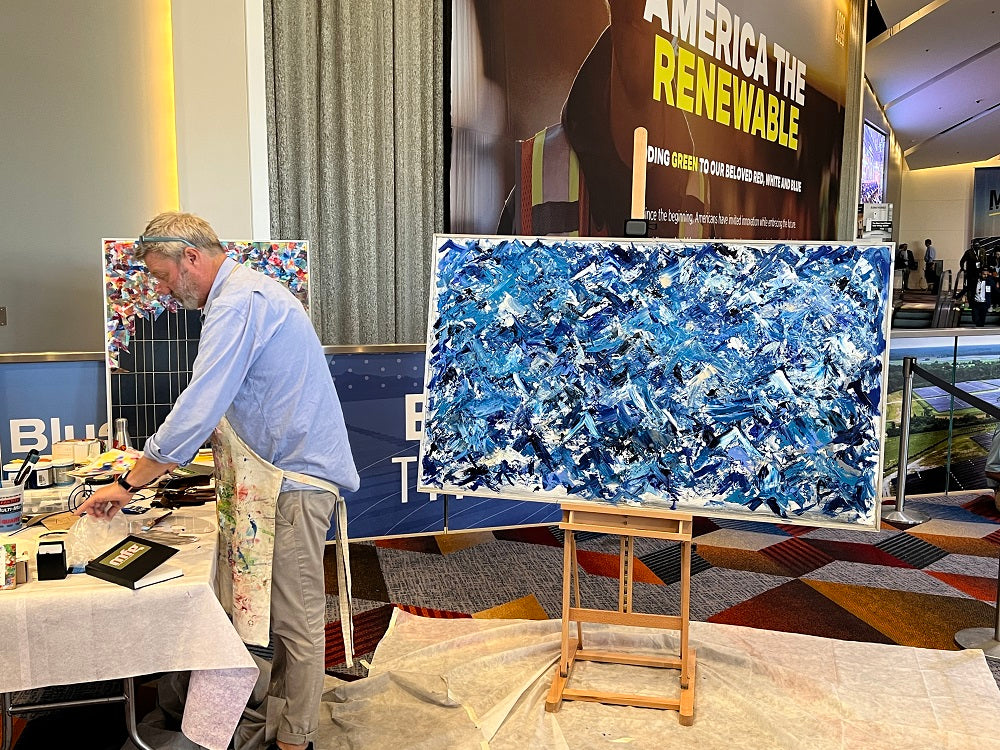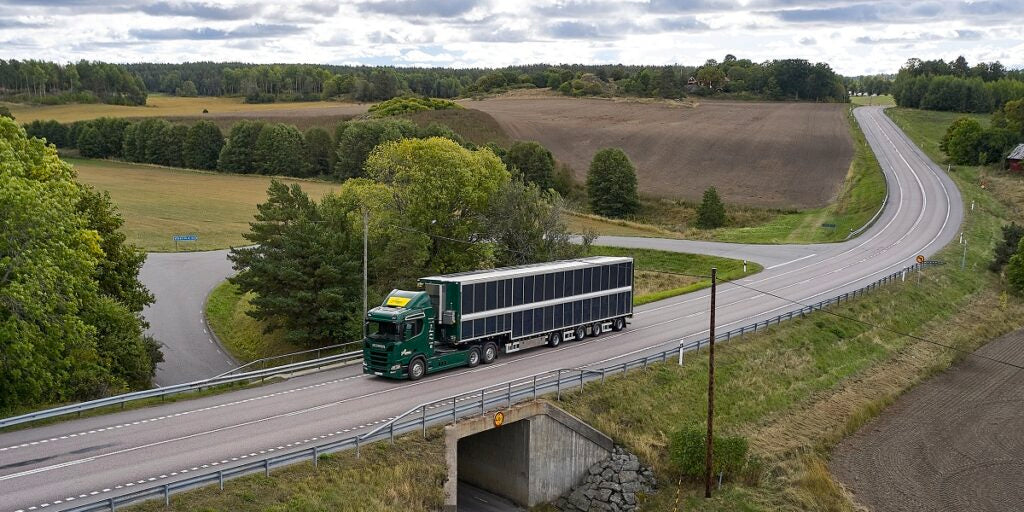https://pv-magazine-usa.com/2023/09/19/on-the-floor-at-re-discovering-high-efficiency-modules-the-erthos-cleaning-robot-and-more/
On the floor at RE+: High-efficiency solar modules, the Erthos cleaning robot, and more

Solar Art on discarded solar modules
Image: John Fitzgerald Weaver
More than 41,000 attendees were estimated to have flocked to RE+ in Las Vegas this year. With over 1,350 exhibitors showcasing their products and 500 of those being first-time exhibitors, the floor at the Venetian Convention Center felt like a sports stadium. Despite the vastness, there were gems around every corner.
Bila Solar – soon to be from Indianapolis – introduced a flexible solar panel set to be produced by middle of next year. Weighing a mere 17 pounds, the representatives said this unit works very well in scenarios where weight is a significant factor, such as warehouses with limited load capacity or structures that shouldn’t be pierced. Its flexibility also enables it to adapt to curved structures.

These 520 Watt modules boast an initial efficiency of 19.3%. Measuring 7’3” in height and just under 4’ in width, their lightweight nature allows a whopping 1,1220 units to be packed into a 40’ shipping container. That’s an impressive 583,440 Watts in total. The panels are manufactured by an Australian company owned by a Chinese firm.
American Storage Energy Innovations (AESI) showcased a 7.2 MWh energy storage unit, a bit larger in size than a shipping container. Although it requires on-site assembly, its energy density is among the highest observed on the show floor, and seem to have the highest capacity of any single energy storage unit on the show floor.
James Mongeau highlighted a standout feature: the absence of wires between the individual prismatic cells. Instead, bars conduct the electricity. Furthermore, if a cell does need replacement, an entire row of parallel-connected cells is removed simultaneously. Thanks to the parallel connections, other interconnected cells remain unaffected.
Erthos caught a lot of attention with their solar module-cleaning robot.

The company, which mounts solar right on the ground, recommends one robot for every 2 MW of solar modules. The robots are self-powered, and charge during the day and clean up to 1 MW of modules overnight. An Erthos kit includes the robot, its charging station, perimeter concrete bricks, metal cables beneath the system, and custom-framed solar modules to facilitate cable connections.
Recently, Erthos announced a 180 MW project in Mississippi, implying the deployment of 90 of their robots. pv magazine USA suggested that the company share a video featuring all of these robots running at the same time, with lights on and at night, as they clean the modules. The company says it is currently working on 18 projects, two of which exceed 100 MW.
3Sun showcased the highest efficiency module that pv magazine USA encountered: a 25% commercial unit. However, these aren’t yet available for the general public. For now, 3Sun primarily supplies to its parent company, Enel, from its 200 MW manufacturing facility in Italy.

However, change is on the horizon. Next year, 3Sun’s Oklahoma-based manufacturing facility will begin operations, potentially producing up to 6 GW annually once later phases are fully built. An intriguing possibility mentioned was the production of a perovskite solar panel atop the company’s existing heterojunction panel as part of the second phase.
On a slightly different note, thanks to Lisa Ann Pinkerton of Technica Communications, several of us from the press had the opportunity to view the Sphere from a unique vantage point. While not a direct solar product, the Sphere’s LED illumination echoes the energy-saving advancements that have significantly cut electricity use both in the U.S. and globally. It’s a vivid reminder that the most cost-effective electricity is the kind we never use to begin with.

All images by John Fitzgerald Weaver.
This content is protected by copyright and may not be reused. If you want to cooperate with us and would like to reuse some of our content, please contact: editors@pv-magazine.com.



